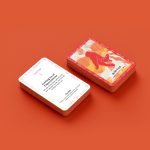CBD scientist John Renko details why retailers should carry certain CBD products as well as how to ID high-quality products.
(Note: This article appears in the February issue of STOREROTICA Magazine)
Hemp-derived CBD has quickly become one of the hottest health and wellness supplements in the US. Industry analysts are predicting that the US CBD market will approach $20 billion in yearly sales by the year 2022.
Retailers that get a head start in offering quality CBD products will reap the rewards in the form of a growing customer base and bigger ticket sales. Customers that have better sex ultimately spend more on products such as sex toys and adult apparel.
However, retailers that stock CBD products without regard for quality and safety risk the wrath of unhappy customers (and possibly even state regulators). This article will discuss the benefits of CBD in sexual wellness, why retailers should carry certain CBD products and provide some rules of thumb that will help you identify high-quality CBD products.
How CBD can enhance sex
Before we go any further let’s talk briefly about the connection between CBD and better sex. Not only can CBD reduce pain and soothe discomfort during intercourse but it can also absorb into the bloodstream and quickly find its way to the brain and central nervous system where it can help to relax muscle tension, reduce performance anxiety, and even intensify orgasm.
These qualities make CBD an ideal additive for intimate lubes.
While oral CBD supplements also provide some of these benefits, it can be as much as an hour before they take effect. Topical preparations, on the other hand, have been shown to reduce inflammation on contact, which in turn can reduce pain, tenderness, itching, and other forms of discomfort.
How to identify a high-quality CBD product
There are a few things that all retailers should be looking for when purchasing CBD products for sale in their stores.
Source – CBD is the same whether it originates from industrial hemp or marijuana. They cannot be used interchangeably in finished goods, however. CBD from “marijuana” should be handled through regulated marijuana frameworks in states that allow marijuana to be sold medically or recreationally. CBD derived from “industrial hemp” is not subject to the same laws governing marijuana. A proper Certificate of Analysis should disclose the source and clarify that the CBD comes from industrial hemp (and therefore is also below 0.3% THC content).
Buyers should also be aware that hemp seed oil contains absolutely zero CBD. Hemp seed oil does have nice omega 3 and 6 properties but does not contain any CBD. There is a myriad of terms used to market CBD origin: broad spectrum, full spectrum, isolate, ethanol extracted, CO2 extracted, etc.
Lab testing – Now that regulation of hemp and CBD is in the hands of the states, we’re getting a patchwork of quality standards. Most states now require some level of testing to confirm the potency and purity of CBD products. (Potency refers to the actual amount of CBD in the final product and purity refers to an absence of heavy metals, impurities, and pathogens such as mycotoxins, and other microbes.)
Certificate of Analysis (COA) – The state with the strictest hemp CBD regulations is Indiana. Indiana regulators require that all CBD products not only be tested but that the test results be made available to consumers via a document known as a Certificate of Analysis, or COA. Each COA is associated with the exact test results for a batch and lot number of every unit shipped. Products that meet Indiana standards are compliant in all states where CBD is legal.
QR Codes – To facilitate access to the COA associated with a product, Indiana requires all CBD products to include a lot number and QR code on the outside of the package. The QR code must reference the actual COA for independent lab tests associated with the lot number. A scan of the QR code should reveal a website URL that links either directly to the COA (usually in PDF format), or to the page with a link to the COA. The batch number on the COA should match the lot number on the package.
Many states are working on legislation to adopt Indiana’s strict standards. As states solidify and potentially adopt these standards, store owners carrying compliant products can be confident that their products will stay on the shelf and continue to remain available to their customers.
John Renko is an engineer and leading CBD scientist and educator. He, along with his wife, Dr. Sadie Allison, are the co-founders of GoLove CBD Naturals. For more information, visit golovecbd.com or call (628) 222-5904.













